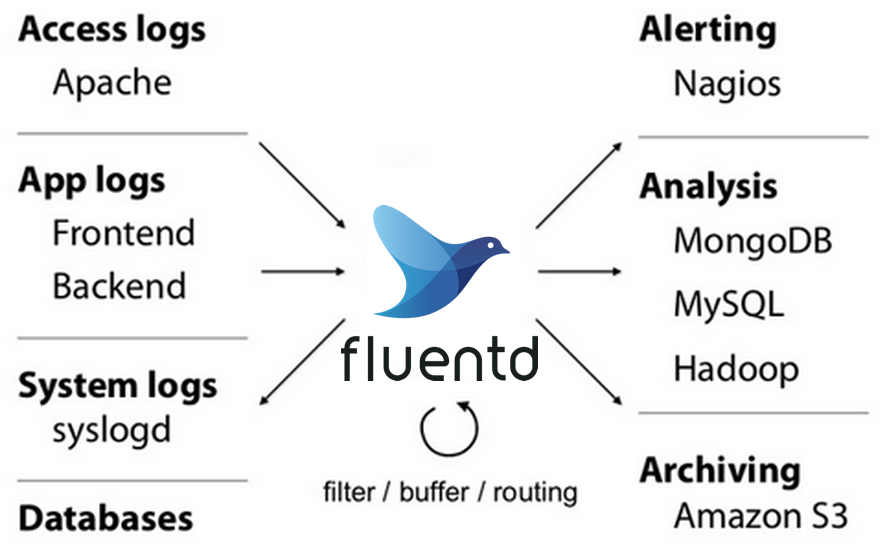Fluentd collects events from various data sources and writes them to files, RDBMS, NoSQL, IaaS, SaaS, Hadoop and so on. Fluentd helps you unify your logging infrastructure (Learn more about the Unified Logging Layer).
$ gem install fluentd
$ fluentd -s conf
$ fluentd -c conf/fluent.conf &
$ echo '{"json":"message"}' | fluent-cat debug.test
- master: For v1 development.
- v0.12: For v0.12. This is deprecated version. we already stopped supporting (See https://www.fluentd.org/blog/drop-schedule-announcement-in-2019).
- Ruby 2.7 or later
- git
git should be in PATH. On Windows, you can use Github for Windows and GitShell for easy setup.
Use bundler:
$ gem install bundler
$ bundle install --path vendor/bundle
$ bundle exec rake test
You can run specified test via TEST environment variable:
$ bundle exec rake test TEST=test/test_specified_path.rb
$ bundle exec rake test TEST=test/test_*.rb
- Website: https://www.fluentd.org/
- Documentation: https://docs.fluentd.org/
- Project repository: https://github.com/fluent
- Discussion: https://github.com/fluent/fluentd/discussions
- Slack / Community: https://slack.fluentd.org
- Newsletters: https://www.fluentd.org/newsletter
- Author: Sadayuki Furuhashi
- Copyright: 2011-2021 Fluentd Authors
- License: Apache License, Version 2.0
A third party security audit was performed by Cure53, you can see the full report here.
See SECURITY to contact us about vulnerability.
Patches contributed by great developers.
